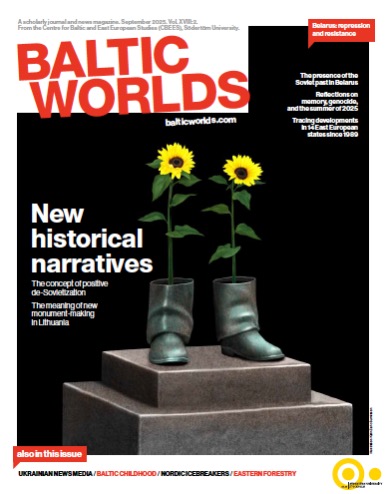THE DEADLOCKS OF MEMORY AND THE (NO LONGER) POST-SOVIET COLONIALITY, or CAN MEMORY BE DECOLONIZED?
The article reflects if it is possible to decolonize memory in the former Soviet republics that have been gradually moving centrifugally towards different political allegiances. It is needed to go beyond the postcolonial/post-Soviet national optic and consider inter-imperial (Doyle) and non-nation-state post-imperial (Burbank and Cooper) models and other unrealized alternatives. The article focuses on coloniality of memory critically engaging with various concepts including “dismembering” (Thiong’o), “mankurtism” (Aitmatov), “Myalism” (Brodber), “multidirectional memory” (Rothberg), “double critique” (Khatibi), “species memory” (Kaiser and Thiele), and the “third way” (Wynter). It sets the goal of tracing possible paths for rethinking of what it means to remember in a human way and what it takes to engender a global mnemonic transversal network of solidarity for refuturing.

 Issue 2025, 2:
Issue 2025, 2: